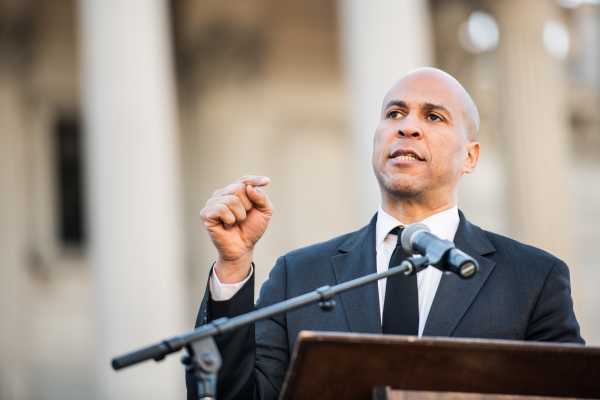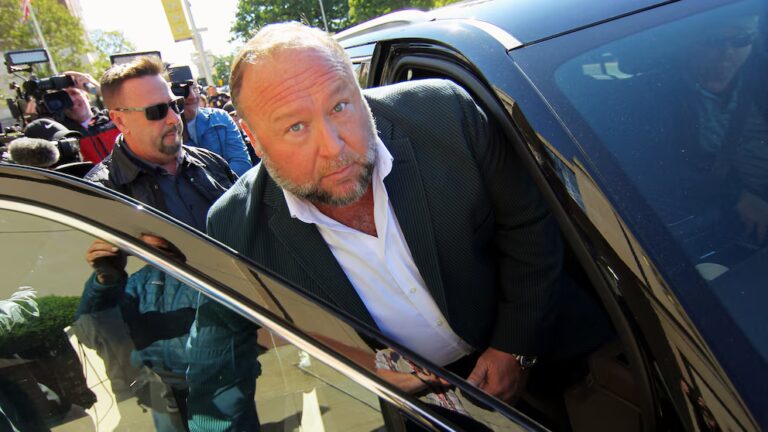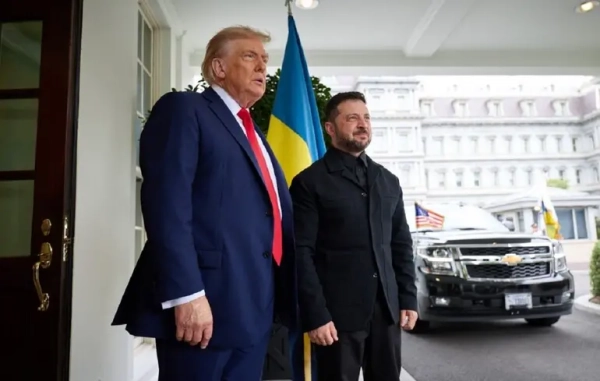
Part of
Vox’s guide to the 2020 presidential candidates
New Jersey Sen. Cory Booker was one of the first candidates to announce he was running for president in 2020. Booker, 49, is a well-known Democratic senator and a former mayor of Newark, New Jersey, who has long been a champion of progressive issues, including criminal justice reform, reducing racial and economic inequality, and legalizing marijuana.
But since he announced in February, Booker has struggled to break into the top ranks of Democratic candidates. He’s hovering around 2 to 3 percent in the polls but has been quietly building a grassroots campaign infrastructure in the early states.
He’s trying to court black voters by leaning into his core themes of solving racial and economic inequities. He was talking about these issues well before he launched his campaign for president, and they featured prominently in his announcement video.
“We are better when we help each other,” Booker said in the video. “I believe that we can build a country where no one is forgotten, no one is left behind; where parents can put food on the table; where there are good-paying jobs with good benefits in every neighborhood; where our criminal justice system keeps us safe, instead of shuffling more children into cages and coffins.”
Booker is hoping his candidacy will speak to an increasingly younger and more diverse Democratic base. He has also positioned himself squarely within the Senate’s progressive wing since he was elected in 2014.
The New Jersey senator is a familiar face in early primary states like Iowa and New Hampshire, where he made appearances on behalf of other candidates in 2018, earning praise from state party officials and operatives. New Hampshire Democratic Party Chair Ray Buckley once called Booker “the best friend New Hampshire Democrats had in 2018.” He’s spending a ton of time in South Carolina, courting the state’s all-important black constituency.
This strategy of quietly making inroads in the early states could pay off closer to February, when Iowa and New Hampshire start to vote. Booker has plenty of time to increase his standing in the polls, but he’s going to want some more early enthusiasm to propel him there.
Cory Booker, briefly explained
Booker has been in the Senate for one term, but his profile within the Democratic Party has been high for quite some time.
Originally born in Washington, DC, Booker grew up in a wealthy New Jersey suburb about 20 miles from Newark, the city in which he started working as a community organizer and where he eventually became mayor. Booker’s father, Cary Booker, grew up poor in North Carolina. He and Booker’s mother, Carolyn, were the first African American executives at the computer company IBM, but the senator has noted they essentially had to pretend to be white to buy a home in the neighborhood he grew up in.
Becoming mayor of Newark in 2006, Booker helped revitalize part of the city’s downtown and promised to crack down on crime. He got some flak from residents who complained he had abandoned some of the city’s neighborhoods, and from teachers unions that didn’t like Booker championing school choice and charter schools.
Booker also got national media attention when during a 2010 blizzard, he essentially turned his mayoral Twitter account into a snowplowing hotline and even personally showed up to shovel a constituent’s driveway.
But more recently, Booker amped up his national profile during the confirmation hearings of Supreme Court Justice Brett Kavanaugh.
As a member of the Senate Judiciary Committee, Booker turned combative while questioning Kavanaugh during the hearings when he released emails he described as confidential that pertained to Kavanaugh’s views on racial diversity. Booker did this even as he received threats from Republican leaders about expulsion from the Senate. The New Jersey senator responded, “Bring it,” before releasing the emails via his Twitter account.
A few hours later, staff for Senate Judiciary Committee Chair Chuck Grassley clarified that the emails weren’t in fact confidential; they had been made public the morning before, giving the impression that Booker’s stand had been more show than substance.
Still, the Kavanaugh hearings, watched by many Americans, were highly emotional and politicized; by brashly defying Republicans on the committee, Booker was leaning into the position of the Democratic base.
What Cory Booker says about policy
Booker has signed on to Sen. Bernie Sanders’s Medicare-for-all plan, a progressive litmus test. He also is a high-profile backer of the Green New Deal, the bold plan to combat climate change proposed by Rep. Alexandria Ocasio-Cortez (D-NY) and Sen. Ed Markey (D-MA).
But Booker’s core issues are social and criminal justice reform policies meant to benefit communities of color. In 2017, he introduced a wide-ranging bill that not only would have decriminalized marijuana at the federal level but also would have encouraged states to legalize marijuana on an individual basis, while punishing states that had especially restrictive marijuana law laws.
Last year, he introduced a Senate bill that would establish a three-year pilot program to test a job guarantee in different areas of the US. The idea of a job guarantee program is gaining traction in the Democratic Party, but Booker’s bill so far is the only one in the Senate laying out steps to set one up.
Booker also released a “baby bonds” bill meant to reduce income inequality by giving low-income children “opportunity accounts.” In some cases, these accounts would leave recipients with a lump sum of up to $50,000. The idea is to give all children — not just those born to wealthier families — a chunk of change they could someday use to help pay for college tuition or to buy a house, further building upon their own wealth.
He has also introduced bills to put more money in working Americans’ pockets by making sure workers get a share of stock buybacks that normally go to company shareholders, and by stopping banks from charging overdraft fees on consumers’ debit card transactions and ATM withdrawals — a move to protect low-income people from getting hit with fees for being in debt.
Booker has made many of these bills central to his campaign, and has used them as the basis for his presidential policy proposals on everything from gun control to housing reform.
A tough issue for Booker in the Democratic primary could be education and charter schools. He was a proponent of school choice and charter schools as Newark mayor, praising current Trump Education Secretary Betsy DeVos’s school choice organization, the American Federation for Children. Booker voted against DeVos’s confirmation, but his position has still earned him sharp rebukes from teachers unions, which are influential within the Democratic Party.
Another difficult spot for Booker could be his past financial ties to Wall Street; in 2014, he got more money from donors with ties to Wall Street than any other member of Congress. As the Democratic base has objected to this money, so has Booker, who disavowed corporate PAC donations last year. Still, a wealthy supporter has already created a Super PAC to support his bid called Dream United and put in $10 million. A Booker spokesperson told the New York Times that the senator and his team aren’t involved in any way to “organize or endorse the creation of a super PAC.”
Booker’s allies are quick to point out that his legislative record takes square aim at big banks and that he has advocated for trying to return more money to American workers. He’s voted numerous times against efforts to weaken or roll back Dodd-Frank, the landmark financial regulation law, for example.
But with the public’s increasing demands that politicians stamp out the role of money in politics, Booker’s financial ties could be something his competitors in a Democratic primary seize on.
And even with all these policy rollouts over the years, Booker’s fellow senator, Elizabeth Warren, has taken on the mantle of being 2020’s policy candidate. Booker does, however, have plenty of his own policies as well, and he is sure to tout his record and policy ideas going into this summer’s first Democratic debates.
Sourse: vox.com






